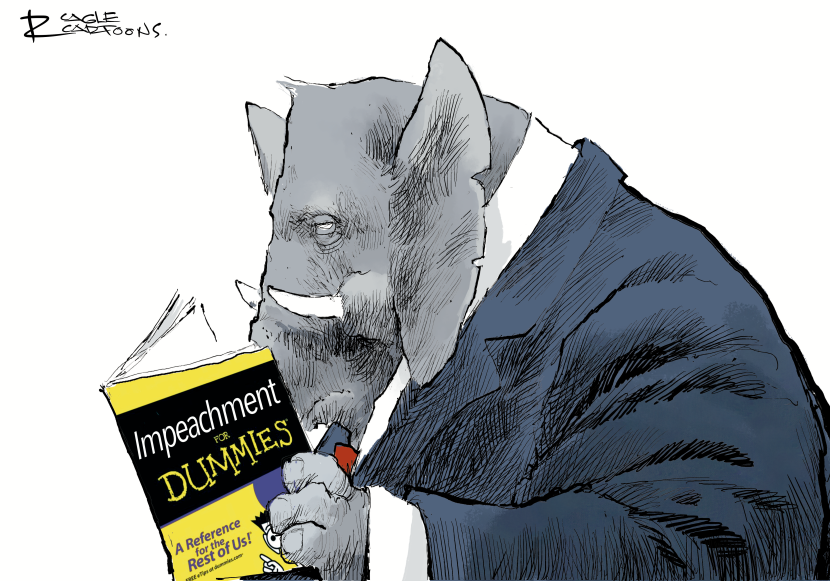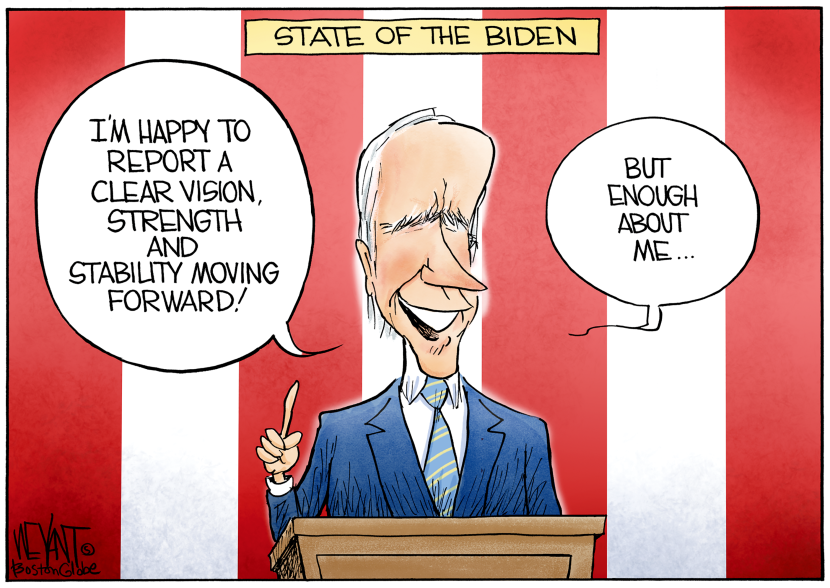Biden is weak, but Republicans are embarrassing themselves

Month after month, poll after poll, a majority of Americans express their dissatisfaction with the Biden administration over virtually every issue of concern – domestic and foreign.
The findings are the equivalent of a campaign strategy memo for Republicans to follow as they seek to win control of Congress and the White House in November.
Inexplicably, the GOP has chosen to ignore what was clear to even the most casual observer of national politics – a vulnerable incumbent president weighed down by questions about his age and mental fitness whose first term record is a rationale for denying him a second.
Instead, Congressional Republicans have embarked on foolish, embarrassing and foredoomed impeachment proceedings. There’s also the headlong rush toward self-destructive proof they are unable to govern by forcing the removal of a House Speaker they elected six months ago after driving his predecessor from office.
The Senate’s rejection of the articles of impeachment against Homeland Security Secretary Alejandro Mayorkas – without debate – was a foregone conclusion. The protracted and costly process toward impeachment of the president is on the verge of abandonment after House Oversight Committee chair James Comer indicated criminal referrals, rather than an impeachment vote, will be the end result.
His was a tacit admission that a handful of Republicans did not support impeachment and forcing a vote would be a major political blunder.
A cynical translation – the entire exercise was an utter waste of time, energy and millions of dollars to produce an outcome that is essentially meaningless.
Of far greater peril to Congressional Republicans is the attempt by a handful of disgruntled members to remove House Speaker Mike Johnson from the office.
The party embarrassed itself on national television in January 2023 by plowing through 15 ballots before electing Kevin McCarthy to the speaker’s position in a raucous spectacle that raised serious concerns the Republican majority would implode and fail in its responsibility to govern.
The party stands at the edge of repeating the chaos and dysfunction of the McCarthy episode with the filing of a resolution by Rep. Marjorie Taylor Greene to “vacate the chair” – that is, oust Johnson.
She’s received support from only two colleagues, but still has the option of forcing a floor vote on her resolution.
At a moment in history when the Republican Party should take full advantage of the opportunity for electoral success, it has instead drawn excessive media attention toward its own self-serving ineptitude.
Greene, the vocal and outspoken leader of the malcontents, seems oblivious to the pitfalls of her actions and, in fact, demonstrated her disdain with the comment “I don’t care if the Speaker’s office becomes a revolving door.”
She torched the Speaker and the Republicans who supported a $95 billion foreign aid bill providing assistance to
Ukraine and Israel as “traitors” to the country. These are the kind of comments which can’t later be walked back or explained and will stick in the memories of those she vilified.
Whether she follows through on her threat and forces a floor vote on Johnson’s removal remains an open question, but the uncertainty will continue to hang heavy over Congress.
Should the House be paralyzed by a prolonged and bitter quarrel over selecting its leader, Republicans will be blamed. There is, moreover, no guarantee that the cycle won’t be repeated, subjecting the party to further criticism.
While the Mayorkas impeachment and the inquiry into the president’s impeachment were costly exercises in futility, the threat of a dysfunctional Congress is of far greater consequence.
The president’s consistently dismal standing on issues and job performance is the guide toward building on the Republican majority in the House and regaining Senate control.
If it continues to ignore the obvious and remains caught up in internal conflict and pointless political theater, a loss in November is inevitable as is the assignment of blame for it.
Simply because the party has lined up the circular firing squad doesn’t mean the triggers should be pulled.
–
Copyright 2024 Carl Golden, distributed exclusively by Cagle Cartoons newspaper syndicate.
Carl Golden is a senior contributing analyst with the William J. Hughes Center for Public Policy at Stockton University in New Jersey. You can reach him at cgolden1937@gmail.








